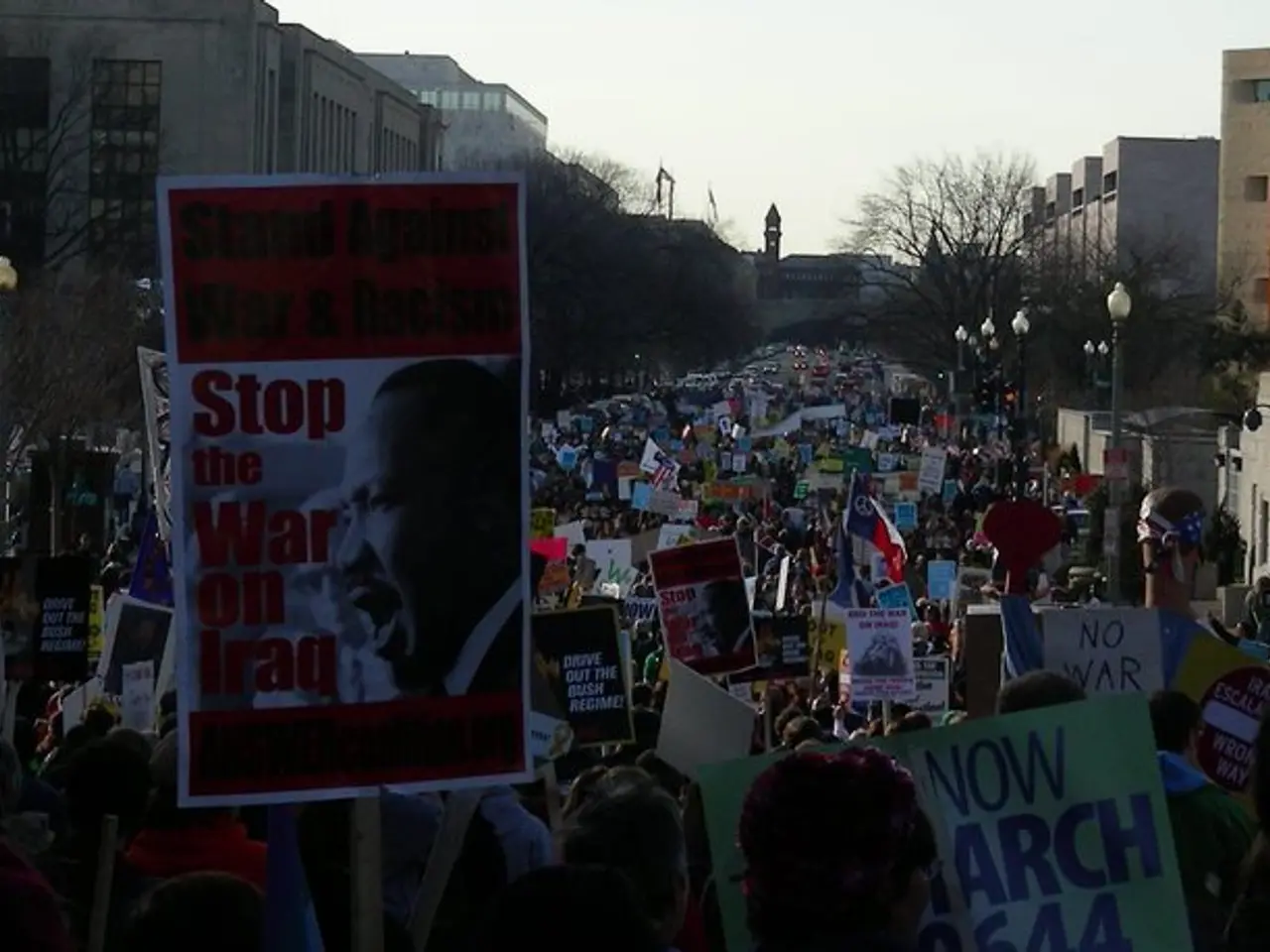Admission of Error by Berlin Police as Ukrainian Language Restricted at Demonstration
In Berlin, Germany, a demonstration was held on Monday evening to protest air raids in Kyiv, Ukraine. The demonstration passed by the Russian embassy in the city.
The demonstrators were speaking in their native Ukrainian language, but an official order was issued by the Berlin police banning speeches in the native tongue of the demonstrators. According to reports, the reason for this ban was a policy by the Berlin police in response to Arabic language chanting at pro-Palestine protests.
However, the Berlin police have since admitted to making a mistake and have apologized for banning Ukrainian at the demonstration. They commented that the "risk forecast" that someone at the Ukrainian demonstration would issue a "criminal statement" was not justifiable.
This incident has raised legal concerns, as it is unclear whether such a ban is strictly legal. According to Patrick Heinemann, a lawyer quoted in the Tagesspiegel, there is uncertainty surrounding the legality of such bans.
Germany’s Basic Law (Grundgesetz) guarantees freedom of speech and assembly, making government restrictions on demonstrations, including speech and symbols, subject to constitutional scrutiny. Recent controversies around banning Palestinian symbols and slogans, such as the keffiyeh and “From the River to the Sea,” show that restrictions related to political speech at protests have led to legal challenges and court rulings, with some bans deemed unlawful.
These indicate that blanket bans on speech, symbols, or language could face similar legal challenges. Berlin authorities have cracked down on certain events, like the Palestine Congress, including arrests and bans, but these actions have been widely criticized for potentially violating democratic rights and free speech protections.
No clear legal precedent or authoritative court decision explicitly addressing bans on speaking foreign languages at demonstrations in Berlin appears in the results, but based on Germany’s strong constitutional protections for democratic rights and criticism of other censorship forms, such bans likely raise serious legal and human rights issues.
Therefore, banning foreign languages at demonstrations could have legal implications regarding constitutional freedoms and face judicial challenges in Germany, reflecting similar tensions seen recently in related protest restrictions. It is important to note that in Germany, people are allowed to assemble freely and speak in the language of their choice.
- The Berlin police's controversial decision to ban speeches in Ukrainian at a demonstration, due to a perceived risk of criminal statements, might face legal challenges given Germany's strong constitutional protections for democratic rights and freedom of speech.
- As the Berlin police's ban on foreign languages at demonstrations could potentially violate democratic rights and free speech protections, it is crucial to remember that, in Germany, people are allowed to assemble freely and speak in the language of their choice.








